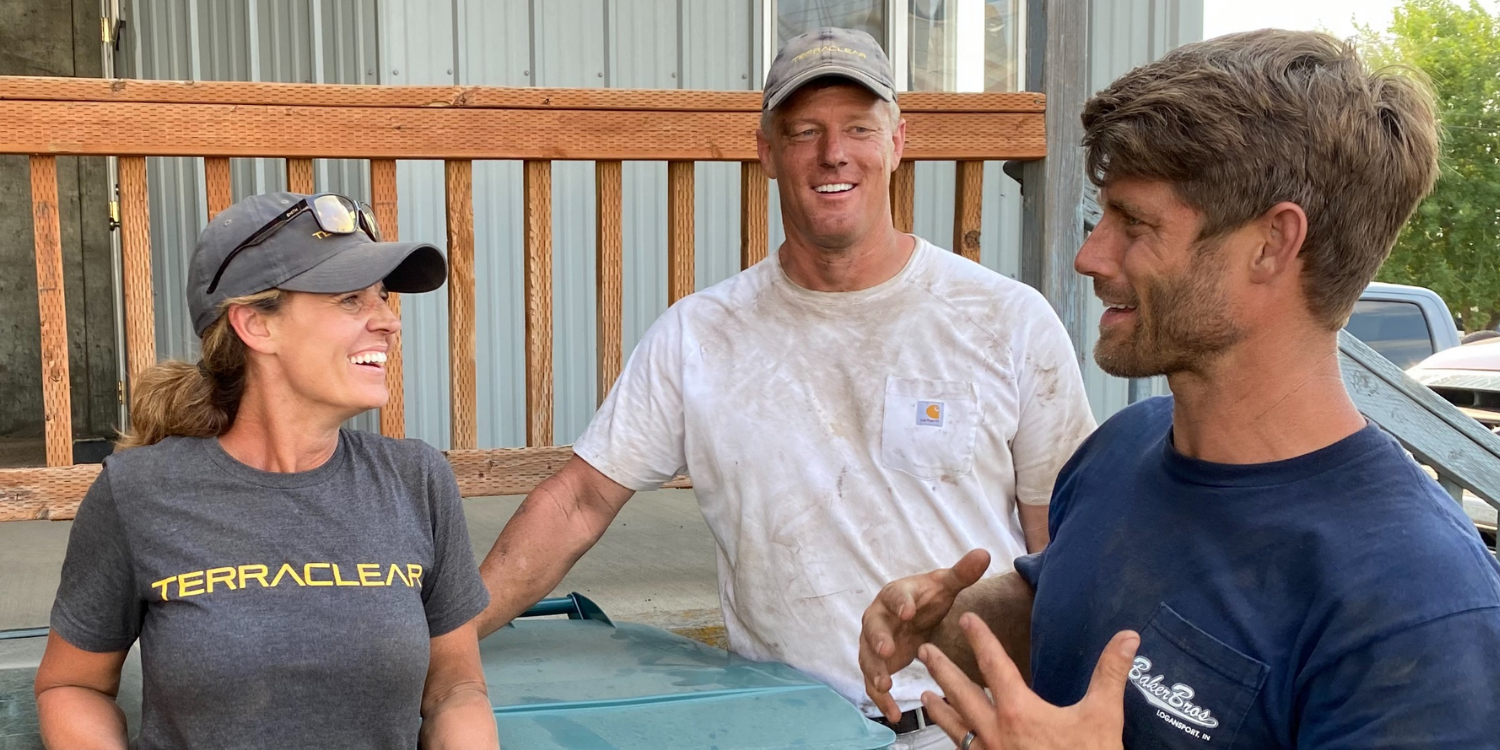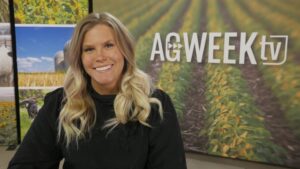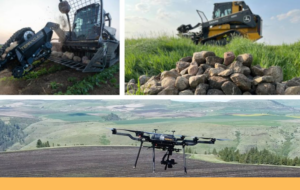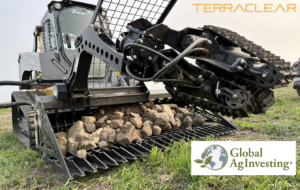GeekWire – Why these successful software founders are planting seeds for new ag tech ventures.
Farmers typically consult the calendar and the weather forecast to figure out when to plant their crops, but figuring out how to grow a tech startup focused on the farm can be a far more complex task.
The challenge can call to mind the old joke about the farmer who won the lottery. When asked how the winnings would be used, the farmer answered, “Well, I guess I’ll just keep farming until the money runs out.”
When it comes to ag tech ventures, the money isn’t running out: Last year, a Crunchbase survey found that venture capitalists were investing roughly $4 billion a year in farm-centric startups — and the flow is continuing despite the COVID-19 pandemic. So far this year, investors have put about $700 million into more than 90 ag tech ventures, according to Crunchbase’s tally.
Some of the stars of the show are Pacific Northwest entrepreneurs who found success in the software industry and are now bringing their startup savvy to the food and agriculture industry. We checked in with four founders to get a sense of how they’re cross-breeding technology with agriculture:
- Brent Frei was a co-founder of Smartsheet and the former CEO of Onyx Software. Now he’s the founder and CEO of TerraClear, a venture that’s developing rock-picking robots for farm fields. The prototypes are being tested at the Frei family farm in Idaho.
- Paul Mikesell’s best-known venture, Isilon Systems, was acquired for $2.25 billion in 2010. Just last month, his latest venture — Carbon Robotics, which is building a self-driving, weed-zapping robot — came out of stealth mode after years of hush-hush development work.
- Keith McCall, who co-founded Azaleos and Enroute Systems, has since gone on to create a robotic crop monitoring startup called Pollen Systems. This year, he acquired and relaunched Everyvine, an online marketplace for wine grapes and other vineyard products.
- George Chrysanthakopoulos, a former Microsoft engineer, founded Directed Machines — which started out building a laser-equipped weed zapper and is now marketing a solar-powered robot that can take on land care tasks such as mowing, trimming and grading.
Each founder responded independently to the same set of emailed questions about the state of ag tech. We’ve lightly edited and condensed their answers:
Why are software entrepreneurs going into ag tech?
TerraClear CEO Brent Frei: “It’s a massive market both in real terms and in its opportunity to directly improve one of the most fundamental human processes. There are fewer and fewer farmers around the world trying to feed more and more people. And they’re doing it while trying to keep the cost of food low for everyone and at the same time remain excellent stewards of the environment. Everything we do to increase productivity while improving environmental impact is super helpful worldwide. On top of being a very good business opportunity, applying cutting-edge technology to ag is incredibly fulfilling, particularly when you’ve personally lived it without that technology.”
Why did you choose the ag tech venture that you’ve chosen? Is founding an ag tech venture fundamentally different from traditional tech ventures, or pretty much the same?
Brent Frei: “It’s extremely rewarding to bring cutting-edge tech into one of the world’s oldest and most meaningful professions. I grew up on a farm, and absolutely love working with farmers as customers. Farmers are amazing people. TerraClear (ag tech) is very similar to Smartsheet (traditional tech) in that they both solve big problems in giant markets where a winning solution has been forever elusive. In starting companies, I have always begun with a hard problem. This process of staying laser-focused on something that helps the customer is incredibly rewarding. And that is even more true when the customer is a farmer. It’s an easy thing to get good people behind.”
Are there lessons from the software world that were particularly useful for a hardware-centric startup? Any lessons you had to un-learn, or new lessons you had to pick up?
Brent Frei: “The product has to be very easy to use, and has to work as expected every time. In a software application, an alternative product is one click away. In ag, the effort to demo an alternative product is very expensive, so farmers are far less forgiving when something doesn’t work. They never give it a second chance.
“That said, when farmers trust a company and know they are trying to solve a real problem, they are very interested in helping. We have always maintained a rapid iterative design process and it is chock full of farmer feedback at every level. I’ve been pleasantly surprised at just how much time and insight farmers have been willing to provide TerraClear because they believe in our goals.”
” When farmers trust a company and know they are trying to solve a real problem, they are very interested in helping.”
In the post-pandemic startup environment, is doing an ag-tech venture harder or easier than in the “before times”?
Brent Frei: “TerraClear has had a more normal working environment than most companies, because a portion of our team spends much of their time outdoors. Farmers work outdoors all day long, and for the most part haven’t changed their farming practices during the rest of the world’s lockdown. That said, much of our team has worked from home. We have evolved like every other company over the past year, and in many ways have become more efficient. We actually feel empowered at this point, more flexible and nimble to shape our workplace environment than we were pre-pandemic.”
Where does ag tech fit in the wider landscape of innovation and entrepreneurship? What technological frontiers look most promising down on the farm?
Brent Frei: “Farming is far more automated than most people understand, but some of the hard jobs in farming do remain unsolved. Repetitive tasks or those prone to human error are excellent targets for automation. Technologies in search of a problem will always have a tough road to adoption on farms, but technologies that specifically reduce manual labor, reduce input cost, reduce the chemical load and increase yield will be very welcome.”
How will tech innovations change our image of farming and farmers?
Brent Frei: “Most people are pretty clueless on how farming works and how their food is produced, but that seems to be changing quickly. The tech in ag now is fascinating, and that will inevitably bring curious people closer to the industry. And it’s making food continuously more affordable and continuously greener, so how can you not be interested in that?”



